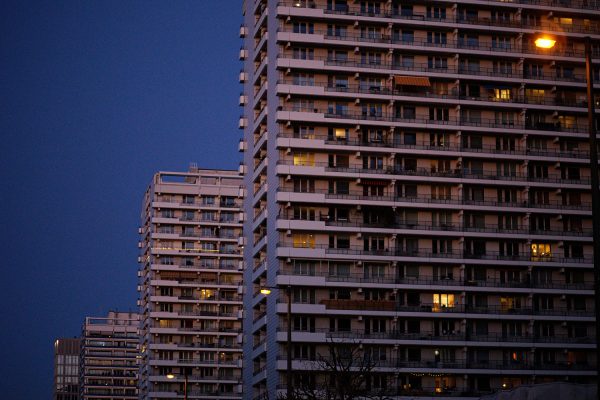
Berliners voted in September to expropriate apartments from large landlords. 56 percent supported the proposal in a referendum, which would put around 243,000 of the city’s 1.5 million rental apartments in public ownership.
I argued against expropriation at the time, and have written a follow-up for the Dutch opinion website Wynia’s Week in which I argue the city is unlikely to go through with it. It is a bad proposal, one that is opposed by even the center-left, and it may not stand up in court.
Unfortunately, that doesn’t mean either the city or the federal government is likely to ease Berlin’s housing shortage.
Shortsighted
Proponents claim public ownership would make housing more affordable. Unlike private companies, the city wouldn’t need to turn a profit.
That is shortsighted. Landlords with fewer than 3,000 apartments (the cutoff in the proposal that was put to a referendum) would be wary of acquiring more homes for fear of being expropriated in the future. Developers would switch to building homes they can sell rather than rent out. The rental market would shrink, making it even harder for the eight in ten Berliners who rent to find a flat.
That’s what happened when Berlin imposed an across-the-board rent freeze two years ago: the number of rental apartments on the market fell 57 percent. Owners kept their flats empty while they waited for Germany’s supreme court to decide if the freeze had been constitutional. It said no, and landlords were able to collect almost a year’s worth of missed rent increases.
It’s hard to imagine the same court authorizing an expropriation.
Berlin is still cheap
Rents in Berlin increased 36 to 42 percent in the last five years. Estimates vary, but there is no doubt the city saw the steepest rent increases of all of Germany.
In part because it used to be so cheap. Renters still pay more for an apartment in Hamburg or Munich. That’s one reason Berlin attracts so many new residents. The population grew by 200,000 in a decade.
There is not much Berlin can do to alleviate its housing shortage other than build, and build faster. (It can take up to two years to get a building permit.)
The federal government should deregulate the rental market nationally.
Currently rents cannot exceed the local average by more than 10 percent. States cap rent increases at 15 to 20 percent per year. Renters are able to pass favorable contracts on to their friends or relatives (Germans call this Nachvertrag). It’s almost impossible to evict renters.
Vicious cycle
The regulations are meant to protect renters, but they lead to abuses. Landlords resort to shenanigans like classifying necessary repairs as optional “modernizations” in order to justify rent increases. (The law is meant to encourage the installation of energy-saving boilers and insulation.) Or they delay repairs for as long as possible, hoping that renters will move out.
Germany is trapped in a vicious cycle: strict regulation leads to abuses, which leads to calls for stricter regulation. Or, in the case of Berlin, support for expropriation.
Signs are not encouraging that the new three-party government of Social Democrats, Greens and liberals will break the cycle. It has proposed to cap rent increases in high-demand neighborhoods at 11 percent over the next three years.
